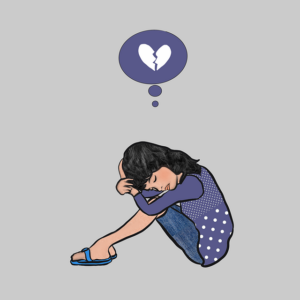Pittsburgh offers a wide array of specialized PTSD therapies tailored to the needs of individuals with trauma-related experiences. The city's top-tier PTSD treatment includes Trauma-Focused Cognitive Behavioral Therapy (TF-CBT), Eye Movement Desensitization and Reprocessing (EMDR) therapy, Prolonged Exposure Therapy (PE), and Cognitive Processing Therapy (CPT). These evidence-based treatments are delivered by skilled trauma counselors who guide patients through the healing process. EMDR combines cognitive strategies with bilateral stimulation to reprocess traumatic memories, while CPT helps individuals challenge and change negative beliefs about their trauma. PE gradually introduces clients to trauma triggers in a safe environment to enhance coping skills. Group therapy provides a supportive space for shared experiences and healing, complemented by mindfulness-based treatments for symptom management and emotional regulation. Medication management enhances the effectiveness of these therapies, and Pittsburgh's commitment to holistic care is evident with the inclusion of alternative treatments like acupuncture or yoga. The city stands out for its comprehensive approach to PTSD treatment, offering a range of therapies including cognitive processing therapy and EMDR therapy, all aimed at empowering survivors to overcome post-traumatic stress disorder.
navigating the complexities of Post-Traumatic Stress Disorder (PTSD) can be a challenging journey for many. In Pittsburgh, a city known for its resilient spirit and rich history, support systems and evidence-based treatments are available to those affected by PTSD. This article delves into the array of specialized therapies offered within the Steel City, including EMDR therapy, trauma-focused cognitive behavioral therapy, prolonged exposure therapy, and more. Each treatment modality is designed to address the unique needs of veterans, first responders, survivors of trauma, and individuals seeking holistic recovery methods. Explore the transformative approaches to PTSD treatment Pittsburgh has to offer and discover how these innovative therapies are making a difference in the lives of those striving for healing and recovery.
- Overview of Evidence-Based PTSD Treatments in Pittsburgh
- Trauma-Focused Cognitive Behavioral Therapy (TF-CBT) in Pittsburgh: Effective Strategies for Healing
- EMDR Therapy for PTSD in Steel City: A Comprehensive Guide to Eye Movement Desensitization and Reprocessing
- Prolonged Exposure Therapy for Pittsburgh Veterans: A Pathway to Recovery
- Cognitive Processing Therapy (CPT) Pittsburgh: Reclaiming Control Over Traumatic Memories
- Group Therapy for PTSD Survivors in Pittsburgh: Finding Solidarity and Support
Overview of Evidence-Based PTSD Treatments in Pittsburgh

In Pittsburgh, a city known for its resilience and strength, there is a comprehensive array of evidence-based PTSD treatments available to those who have experienced trauma. PTSD therapy Pittsburgh is not one-size-fits-all; it encompasses various modalities tailored to each individual’s unique experiences and needs. Trauma-focused Cognitive Behavioral Therapy (TF-CBT) Pittsburgh stands out as a gold-standard treatment, helping individuals safely process their traumatic memories and develop healthy coping mechanisms. EMDR therapy Pittsburgh is another cornerstone in the city’s PTSD treatment arsenal; it utilizes eye movement desensitization and reprocessing to alleviate the distressing symptoms of PTSD by targeting the brain’s information processing system.
The city also offers specialized treatments such as Prolonged Exposure Therapy (PE) Pittsburgh, which is particularly effective for veterans dealing with PTSD. PE involves repeated and prolonged exposure to trauma-related memories, avoidance behaviors, and external fear cues to help desensitize individuals and reduce their avoidance behaviors. Cognitive Processing Therapy (CPT) Pittsburgh assists survivors in reframing negative beliefs about the traumatic event and its aftermath, fostering a more adaptive understanding of the experience. Group therapy for PTSD survivors Pittsburgh provides a supportive environment where individuals can share their experiences and learn from each other’s journeys. Additionally, mindfulness-based treatments offer techniques to manage symptoms and promote emotional regulation. Medication management for PTSD Pittsburgh is also an integral part of treatment, often used in conjunction with psychotherapy to optimize outcomes. Holistic approaches to PTSD recovery Pittsburgh, including alternative therapies like acupuncture or yoga, are increasingly being incorporated into comprehensive treatment plans to support the mental and physical well-being of those affected by PTSD. These treatments, collectively available in Pittsburgh, exemplify the city’s commitment to providing robust, evidence-based care for individuals grappling with PTSD.
Trauma-Focused Cognitive Behavioral Therapy (TF-CBT) in Pittsburgh: Effective Strategies for Healing

Trauma-Focused Cognitive Behavioral Therapy (TF-CBT) has emerged as a cornerstone in the PTSD therapy Pittsburgh landscape, offering effective strategies for healing those who have experienced trauma. This form of therapy is specifically designed to help children and adults understand and manage the emotions, thoughts, and behaviors associated with traumatic events. In Pittsburgh, specialized trauma counseling Pittsburgh practitioners employ TF-CBT to assist individuals in reframing their thought patterns and developing coping mechanisms. The therapy involves a collaborative process where patients learn to view their experiences from a different perspective, leading to reduced symptoms of PTSD.
Pittsburgh’s approach to TF-CBT is complemented by other innovative treatments such as EMDR therapy Pittsburgh, which stands for Eye Movement Desensitization and Reprocessing. This method facilitates the reprocessing of traumatic memories through bilateral stimulation, often involving eye movements or auditory tones, helping to alleviate the distress associated with those memories. Additionally, cognitive processing therapy Pittsburgh is offered, guiding individuals through the process of examining and modifying the negative beliefs that often accompany PTSD. Exposure therapy Pittsburgh, a key component in the treatment of PTSD, involves gradual exposure to trauma reminders under controlled conditions to help clients develop coping skills. These therapies are accessible to veterans, first responders, and survivors alike, reflecting the comprehensive nature of PTSD treatment Pittsburgh available for those seeking recovery from trauma-related conditions.
EMDR Therapy for PTSD in Steel City: A Comprehensive Guide to Eye Movement Desensitization and Reprocessing

In Pittsburgh, a city known for its resilient spirit and rich history, the landscape of PTSD therapy is evolving with innovative treatments that cater to those who have experienced trauma. Among these, EMDR therapy has emerged as a transformative modality within the realm of PTSD treatment Pittsburgh. Eye Movement Desensitization and Reprocessing (EMDR) therapy is an integrative approach that combines elements of cognitive-behavioral therapy with bilateral stimulation to help individuals process traumatic memories. EMDR therapy Pittsburgh is recognized for its effectiveness in alleviating the distressing symptoms associated with PTSD, such as flashbacks, anxiety, and nightmares. Trauma counseling Pittsburgh professionals trained in EMDR report that the therapy’s adaptive information processing model can lead to significant improvements in an individual’s mental health. This is achieved by using eye movements or other bilateral stimuli while the patient focuses on traumatic memories, thought to help rewire the brain’s responses to these memories.
The process of EMDR therapy Pittsburgh involves eight distinct phases, each with a specific goal to prepare the client for trauma processing, desensitize the memories, and reinforce positive outcomes. EMDR is often employed in conjunction with other PTSD treatments available in Pittsburgh, such as cognitive processing therapy Pittsburgh, exposure therapy Pittsburgh, and mindfulness-based interventions. These treatments are tailored to address the unique needs of different groups, including veterans, first responders, and survivors of trauma. The comprehensive approach to PTSD treatment in Pittsburgh ensures that individuals have access to a variety of therapies that best suit their recovery journey, with EMDR therapy being a key component for those seeking an evidence-based method to overcome the effects of post-traumatic stress disorder.
Prolonged Exposure Therapy for Pittsburgh Veterans: A Pathway to Recovery

In Pittsburgh, a city that has borne witness to its fair share of conflict and change, the pathway to recovery for veterans with PTSD is being paved through specialized therapies tailored to their unique experiences. Prolonged Exposure Therapy (PE) stands out as a cornerstone in this therapeutic landscape, offering a structured approach to confronting trauma. This evidence-based treatment modality is designed to help veterans face and work through their traumatic memories in a controlled environment, gradually reducing the fear response associated with these memories. By repeatedly exposing individuals to trauma-related memories, situations, or emotions in a safe setting, PE empowers veterans to gain a new perspective on their experiences, thereby diminishing the long-term effects of PTSD. The dedicated trauma counseling Pittsburgh centers provide are instrumental in this process, ensuring that each veteran receives personalized care and attention to navigate their healing journey effectively.
The city’s commitment to offering comprehensive PTSD treatment options is further evidenced by its availability of EMDR therapy Pittsburgh, cognitive processing therapy Pittsburgh, and other modalities. These treatments are integral to the holistic approach to recovery, addressing the various manifestations of PTSD. EMDR (Eye Movement Desensitization and Reprocessing) harnesses the therapeutic potential of bilateral stimulation to help individuals reprocess and alleviate the distressing memories that contribute to PTSD. Meanwhile, cognitive processing therapy Pittsburgh helps veterans understand how their thoughts about the trauma can keep PTSD symptoms active and teaches them how to modify these thoughts for better mental health outcomes. These therapies are not mutually exclusive; they often complement each other, creating a robust treatment regimen for those who have served. The collaborative efforts of healthcare providers in Pittsburgh ensure that veterans have access to these effective treatments, paving the way for a more integrated and fulfilling life post-trauma.
Cognitive Processing Therapy (CPT) Pittsburgh: Reclaiming Control Over Traumatic Memories

In Pittsburgh, cognitive processing therapy (CPT) stands as a beacon of hope for those grappling with PTSD. This form of trauma counseling aims to help individuals reclaim control over traumatic memories that often dominate their thought processes. Through a structured program, CPT guides patients to confront and modify negative beliefs about themselves, others, and the world that have been fostered by their traumatic experiences. By breaking down the complex narrative of trauma into manageable parts, this PTSD therapy Pittsburgh allows survivors to examine and process their emotions and thoughts in a supportive environment, leading to a restructuring of thought patterns that are more adaptive and less overwhelming. This approach is integral within the city’s mental health landscape, offering a pathway towards healing for those affected by trauma.
The effectiveness of CPT in the context of PTSD treatment Pittsburgh cannot be overstated. It is designed to help individuals understand their traumatic experiences within a broader perspective, reducing the power these memories hold over them. PTSD therapy Pittsburgh encompasses various techniques, but CPT distinguishes itself by its explicit focus on the cognitive aspects of trauma. The process involves identifying distorted thoughts about the trauma, examining the evidence for and against these beliefs, and finally, developing new, balanced ways of thinking that promote resilience and well-being. This method is a testament to the power of words and thought patterns in overcoming the debilitating effects of PTSD, offering a clear and structured path towards recovery.
Group Therapy for PTSD Survivors in Pittsburgh: Finding Solidarity and Support

In Pittsburgh, group therapy for PTSD survivors has emerged as a cornerstone of PTSD therapy Pittsburgh, offering a safe and supportive environment where individuals can share their experiences with trauma. These groups facilitate trauma counseling Pittsburgh by fostering a sense of solidarity among participants who have encountered similar challenges. Through this collaborative approach, survivors not only receive professional guidance from licensed therapists but also gain invaluable support from peers who understand the complexities of living with PTSD. This dynamic is particularly beneficial as it aligns with the principles of social learning theory, which suggests that people can learn behaviors and coping mechanisms through observing others in their environment.
The city’s comprehensive offering includes various modalities such as EMDR therapy Pittsburgh, cognitive processing therapy Pittsburgh, and exposure therapy Pittsburgh. Each of these treatments is integral to the PTSD treatment Pittsburgh landscape, offering distinct yet complementary approaches to addressing the symptoms of PTSD. Group therapy can be particularly effective in delivering these therapies, as survivors learn from each other’s experiences and share successful coping strategies. This communal approach to trauma recovery not only validates individual struggles but also empowers survivors with a collective strength that is unique to group settings. The camaraderie formed within these groups often extends beyond the therapy room, creating a network of support that can endure long after the formal treatment has concluded.






